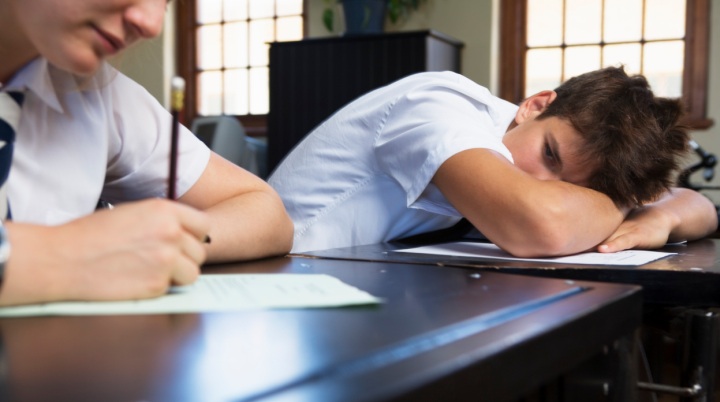
Sleep Deprivation Rivals Alcohol and Drug Use in Academic Performance
Posted June 13, 2014, 2:00 pm by
Colleges are very aware of the drug and alcohol problems on their campuses, and allocate funds and resources towards combating these health risks. But what if sleep deprivation could result in the same side effects as binge drinking or marijuana use?
Poor Sleep Equal to Binge Drinking, Marijuana Use
A small study from the American Academy of Sleep Medicine reveals that poor sleep causes academic disparities—low grades, withdrawal from class, etc.—similar or equal to the side effects of regular marijuana use or binge drinking. Sleep timing and maintenance problems are predictors of academic trouble and are proven to lower students’ GPAs.
The American College Health Association’s National College Health Assessment used the sleep data of 43,000 students to research the effect of sleep on academic performance. While many students do not have clinical sleep disorders, the study found that 60% of students report having difficulty sleeping—many compared this to feeling hung over after a long night of drinking.
Students report muscle soreness, stress, and extreme difficulty waking up after a night of disturbed sleep. A sophomore at Acadia University explains, “When I do have trouble sleeping, I feel stressed because the longer I am laying there without falling asleep, the more time I have to stress over things I haven’t given a thought to during the day. My body feels uncomfortable, like I feel the need to move around every second.”
Sleep Solutions
While most colleges thoroughly address substance abuse problems, very few have thought to combat the poor sleeping patterns of their students (The University of Michigan did a good job by implementing “napping stations” throughout campus). Researcher Roxanne Prichard, PhD, reveals, “Sleep problems are not systematically addressed in the same way that substance abuse problems are. For colleges and universities, addressing sleep problems early in a student’s academic career can have major economic benefit through increased retention.”
Not only is the lack of sleep detrimental to the mental health of students, it is directly related to poor academic performance. For the benefit of both the institution and their students, colleges and universities must work towards a solution.
Information adapted from USA TODAY College.
Blog Categories
- Career Advice
- College Admissions
- Colleges & Universities
- Financial Aid and Scholarships
- For Counselors
- For Parents
- For Students
- Gap Years
- Mental Health and Wellness
- Online Learning
- Performing and Visual Arts
- STEM Majors and More
- Summer Programs
- Teen Volunteering
- Trade & Vocational Schools
- Tutoring & Test Prep

Organization with listings on TeenLife? Login here
Register for Free
We’re here to help you find your best-fit teen-centered academic and enrichment opportunities.
Forgot Password
"*" indicates required fields








